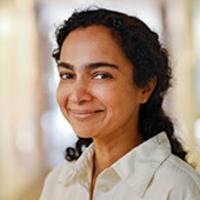Religion and Health in Early Childhood in India
This project aims to investigate the puzzle of child undernourishment in India by comparing differences in child health outcomes by religious affiliation. The religious affiliation of a child's family provides information on the likely dietary restrictions encountered by a child in his or her early growing years, on a child's exposure to fasting in utero during the Muslim holy month of Ramadan, and on possible differences in women's autonomy and control over household resources arising from differences in son preference. All these factors may contribute to the high rate of stunting and wasting among Indian children. Recognized causes include lack of effective food distribution, mismanagement of resources, and corruption. However, differences in religious affiliation may also play a role and this is the topic that this project seeks to inform. By shedding light on relative variations in child health by religious identity, this project will address the constraint that economic growth cannot be sustained without accompanying improvements in health of young children.
The three main religious communities in India are Hindus, Muslims and Christians, and religious practices differ in a number of ways between them: in addition to the strict adherence to a vegetarian diet practiced by the majority of upper-caste Hindus, Muslims do not consume pork and fast during daylight hours in the holy month of Ramadan (including pregnant Muslim women). Christians also adhere to vegetarian diets and fast during different months of the year. Moreover, there are significant differences in women’s education and health status, practices involving personal health and hygiene and access to medical care among religious groups. In particular, while Muslim women tend to be taller and to have higher levels of hemoglobin, they are less educated, marry at a younger age, less likely to work and less likely to seek prenatal or antenatal care from a doctor, compared to Hindu and Christian women.
Using data from three rounds of the Demographic and Health Surveys for India 1992-93, 1998-99 and 2005-06, three rounds of panel data on children from Andhra Pradesh, India collected in the Young Lives Surveys, and NSSO consumer expenditure modules, this project will investigate whether religious affiliation impacts child health, particularly infant mortality and height-for-age z scores (measure of long-term health). Use of multiple data sets will allow corroboration of results and tests to rule out mortality selection in addition to other confounding factors. Additionally, using the location of Christian missions from the eighteenth to nineteenth centuries, we aim to construct a set of variables that may be used to instrument conversion to Christianity in India. Finally, a short survey will be administered through contracting with a local agency in Kerala, India to understand perspectives on religion and child health and to complement the quantitative evidence with qualitative context-specific information (we focus on Kerala since it has a sizeable proportion of Hindus, Muslims and Christians). The sample size will most likely be about one hundred children. The local partner we hope to work with is the Center for Development Studies in Thiruvananthapuram, Kerala.


